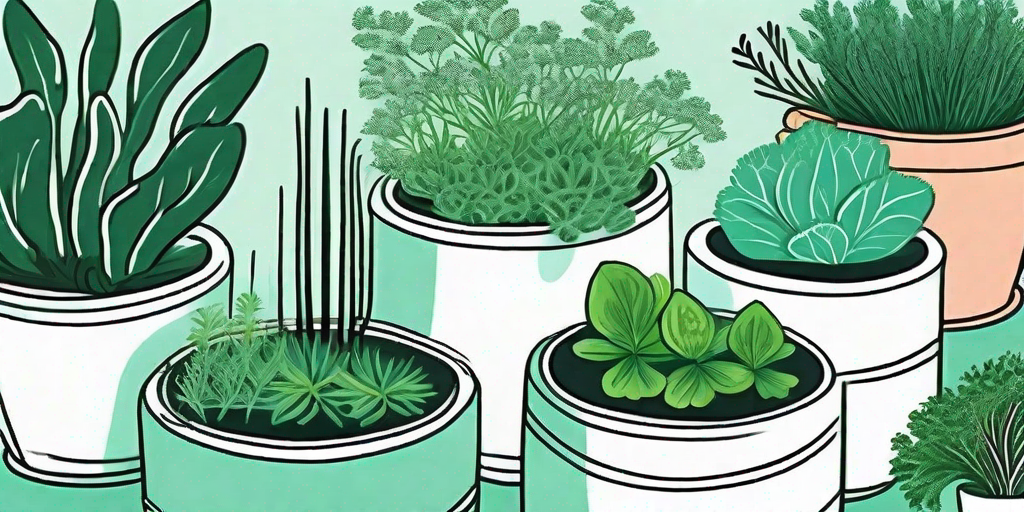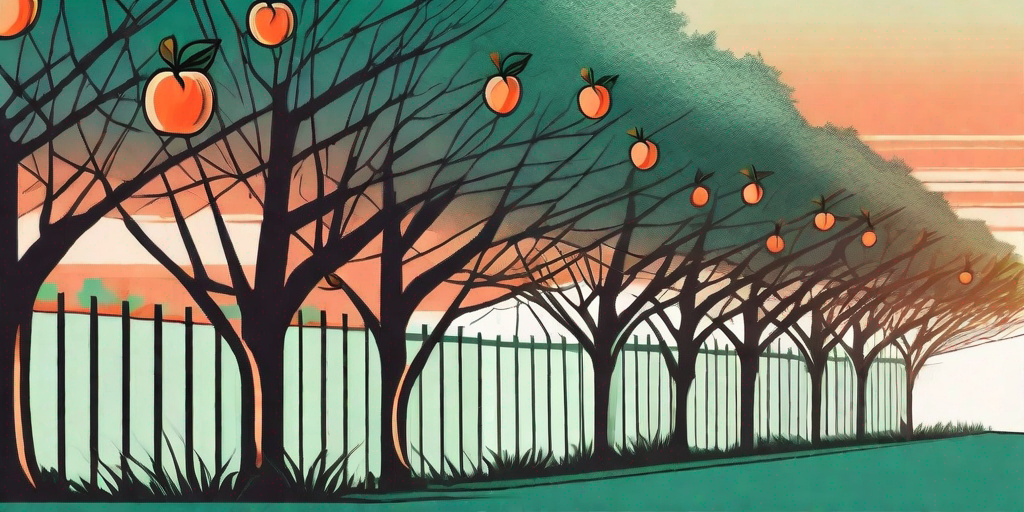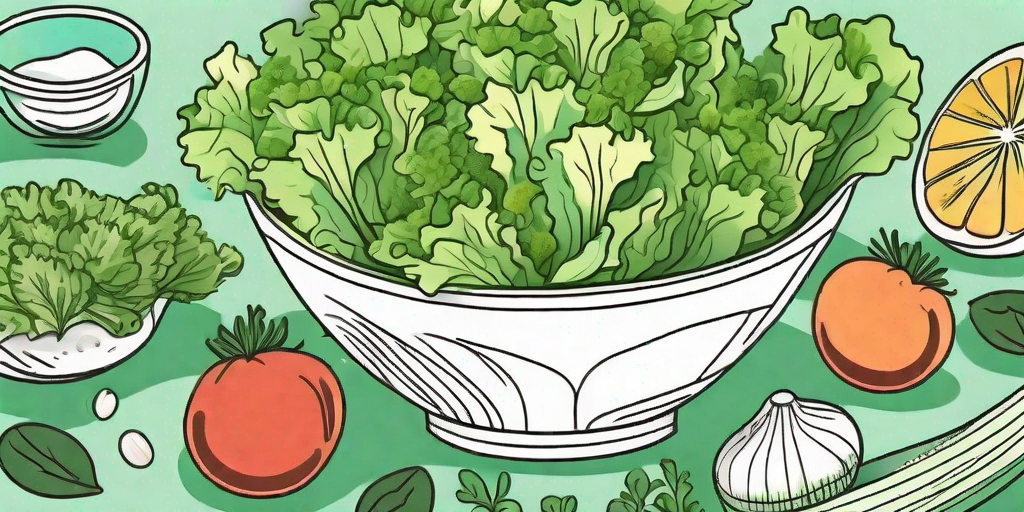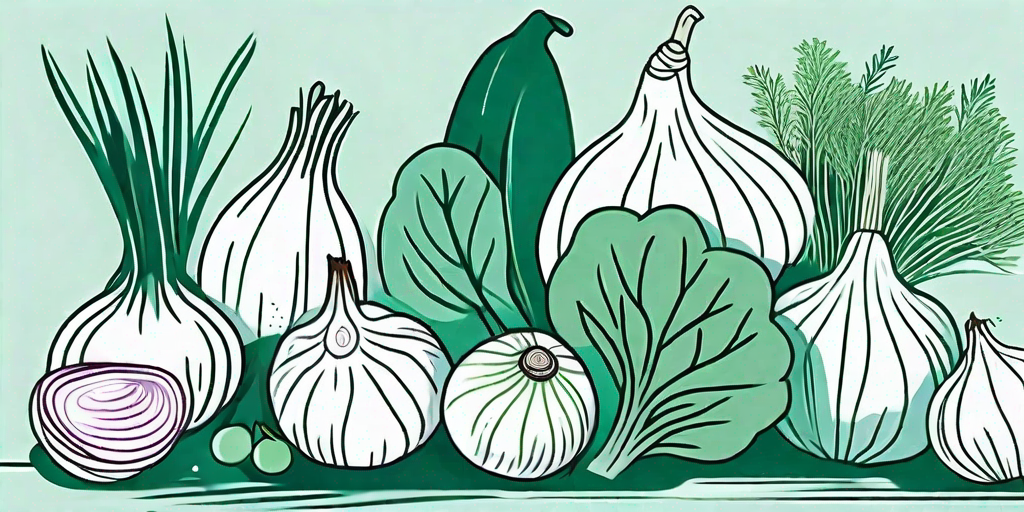
Gardening, much like a good party, is all about the right mix of guests. And in the botanical world, dill is that charismatic guest who gets along with everyone. But who are the best buddies for this feathery, fragrant herb? Let's dive into the world of dill companion plants and discover how to create a thriving herb garden that's the talk of the town (or at least, your neighborhood).
Understanding Companion Planting
Before we start sending out garden party invitations, let's first understand what companion planting is. It's the art and science of arranging plants together for mutual benefit. Think of it as a botanical buddy system. Some plants help each other grow, repel pests, or enhance each other's flavor. It's like a plant version of a buddy cop movie, but with less car chases and more photosynthesis.
And why dill, you ask? Well, dill is like the life of the party in the garden. It attracts beneficial insects, repels pests, and enhances the growth and flavor of many plants. Plus, it's delicious in pickles and salmon dishes. What's not to love?
Top Dill Companion Plants
Now that we've established why dill is the herb equivalent of a social butterfly, let's look at some of the plants that benefit most from its company. These are the plants that, when paired with dill, will make your garden a verdant, thriving Eden.
Cabbage Family
Members of the cabbage family, including broccoli, Brussels sprouts, and kale, are great companions for dill. Dill attracts wasps and other predators that control pests like cabbage worms and aphids, which are notorious for decimating cabbage crops. It's like having a bouncer at your garden party, keeping the riff-raff out.
However, keep in mind that dill can cross-pollinate with plants in the carrot family, which includes some members of the cabbage family. So, if you're planning to save seeds, it's best to keep them apart. Otherwise, you might end up with some botanical hybrids that would make a mad scientist proud.
Onions and Leeks
Onions and leeks are also great companions for dill. They help each other out by repelling pests. Dill deters aphids and spider mites, while onions and leeks repel carrot flies. It's like they've got each other's backs in a bar fight, but with bugs instead of bikers.
Plus, dill and onions are a classic flavor combination. So, planting them together not only benefits your garden, but also your kitchen. It's a win-win situation.
Cucumbers and Corn
Cucumbers and corn are another great pairing with dill. Dill enhances the growth of cucumbers, while corn provides a natural trellis for dill to climb. It's like a botanical version of a buddy road trip movie, with dill and corn taking turns driving and navigating.
And let's not forget the culinary benefits. Dill pickles, anyone? Or how about a fresh corn and dill salad? Your taste buds will thank you.
Plants to Avoid Planting with Dill
While dill gets along with most plants, there are a few that it doesn't play well with. These are the plants that, when paired with dill, might turn your garden into a botanical version of a reality TV show feud.
Carrots and Tomatoes
Carrots and tomatoes are not good companions for dill. Dill can stunt the growth of carrots, while tomatoes can inhibit the growth of dill. It's like a botanical version of a sibling rivalry, with each plant trying to outdo the other.
So, if you're planning to plant dill, it's best to keep it away from carrots and tomatoes. Otherwise, you might end up with a garden drama that's more entertaining than productive.
FAQs
Can I plant dill with basil?
Yes, dill and basil make a good pair. They both enjoy full sun and well-drained soil, and they can help each other repel pests. Plus, they're both delicious in a variety of dishes. So, feel free to invite basil to your dill garden party.
Does dill attract beneficial insects?
Absolutely! Dill is known for attracting beneficial insects like wasps and hoverflies, which prey on common garden pests. It's like having a pest control service, but with more wings and less chemicals.
How often should I water my dill plants?
Dill likes to stay hydrated, but not too wet. Aim to water it once or twice a week, depending on the weather. If the soil feels dry to the touch, it's time to water. If it feels moist, hold off on the water. Remember, dill likes a drink, but it's not a fan of swimming.
Conclusion
So there you have it, the top dill companion plants for a thriving herb garden. By choosing the right companions for your dill, you can create a garden that's not only productive, but also harmonious. It's like hosting the perfect garden party, where everyone gets along and the food is delicious.
So, why not invite dill and its companions into your garden? Your plants will thank you, your taste buds will thank you, and your neighborhood might even throw you a parade. Or at least, they'll stop giving you weird looks when you talk about your garden parties.











